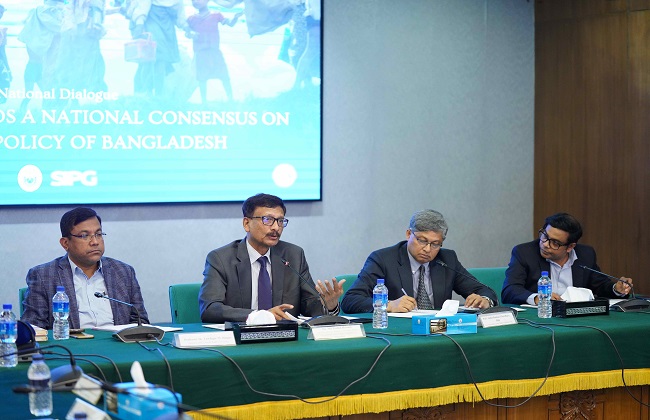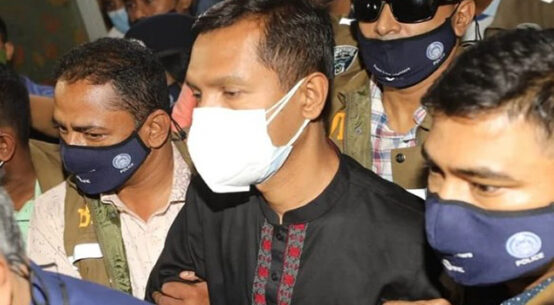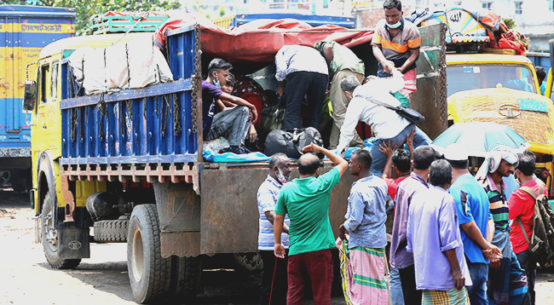
The importance of a national consensus as well as robust international support to resolve the protracted Rohingya crisis has been reiterated at a National Dialogue on Rohingya Policy hosted by North South University’s (NSU) South Asian Institute of Policy and Governance (SIPG) Saturday. The National Dialogue titled “Working Towards a National Consensus on the Rohingya Policy of Bangladesh” took place at the Bangladesh Institute of International and Strategic Studies (BIISS) Auditorium in Dhaka and brought together a diverse range of stakeholders, including policymakers, academics, development partners, NGOs, media, and Rohingya leaders.
Speaking at the closing Session, Foreign Advisor Tauhid Hossain underscored the need to secure rights for the Rohingya and ensure their security in Rakhine as preconditions for sustainable repatriation. He felt the need for a stronger Rohingya voice to articulate their legitimate demands, referring to crisis fatigue, he emphasized on renewed engagement of major regional and international stakeholders towards finding creative solutions. He hoped that Political parties should always seek to be open to inputs and views of their political opponents on a matter of such national importance. He supported providing education aligned with the Myanmar curriculum to prepare Rohingya children for reintegration upon their return. Additionally, he stressed the need for maintaining a minimum level of deterrence to safeguard national interests.
The inaugural session was graced by Lieutenant General (Retd.) Abdul Hafiz, Special Assistant to the Chief Adviser of the Government of Bangladesh, as the Chief Guest. Professor Sk. Tawfique M. Haque, Director of SIPG, delivered the opening remarks and contextualized the dialogue’s significance. Following a keynote presentation, thought-provoking discussions led by special guests, including representatives from the United Nations and international agencies and speakers took place.
The first roundtable had thematic discussion on all major aspects of domestic, regional and international dimensions of the Rohingya crisis. During the dialogue, participants reflected on the complex geopolitical dynamics surrounding the crisis. The speakers appreciated the need for a Rohingya policy and also a policy on refugees. They had threadbare discussion on the nomenclature of forcibly displaced Myanmar nationals and refugees, enhanced access to services and rights in Bangladesh camp, possibility of humanitarian corridor to Rakhine, engagements with emerging stakeholders of Myanmar and Rakhine as well as a broader international coalition to advance interests of the Rohingya.
The second roundtable of the National Dialogue on Rohingya Policy Consensus brought together prominent speakers from various political parties and academic institutions. Key participants included Mr. Amir Khasru Mahmud Chowdhury and Ms. Shama Obaid from the Bangladesh Nationalist Party (BNP), and Mr. AHM Hamidur Rahman Azad from Bangladesh Jamaat-e-Islami. Representatives from other political groups, including the Communist Party of Bangladesh (CPB), Bangladesh Jatiya Samajtantrik Dal and the Ganosamhati Andolan.
The session, moderated by Prof. Sk. Tawfique M. Haque encouraged a comprehensive exchange of views on the ongoing Rohingya crisis and potential solutions. Speakers also discussed the long-term implications of the crisis for Bangladesh. Mr. Amir Khasru Mahmud Chowdhury called for a national consensus and a clear policy on managing the Rohingya issue. He also underscored the need for national strength to be manifested for sustainable resolution of the crisis. Mr. Hamidur Rahman Azad stressed the humanitarian aspect, advocating for the Rohingyas’ right to be treated with dignity. Speakers generally underscored the importance of securing borders, addressing social and economic challenges, and ensuring the safe repatriation of the Rohingya to Myanmar with dignity and rights. They advised to examine the crisis holistically and to engage all relevant stakeholders.
Professor Abdul Hannan Chowdhury, PhD, Vice-Chancellor of North South University (NSU), emphasized the critical need for collaborative efforts to address the ongoing Rohingya crisis during the National Dialogue organized by SIPG. He expressed hope that the dialogue would yield a valuable guideline for interim governance and contribute to a forward-looking, sustainable resolution. He offered services of the North South University as the knowledge for the government as it works towards resolution of the crisis.


